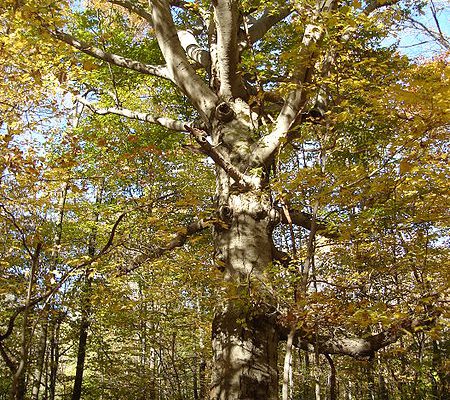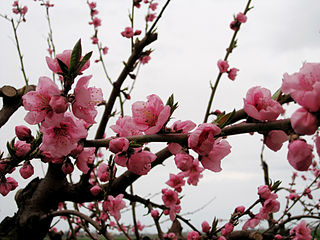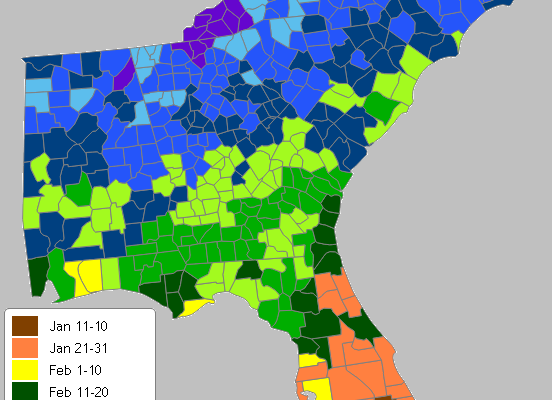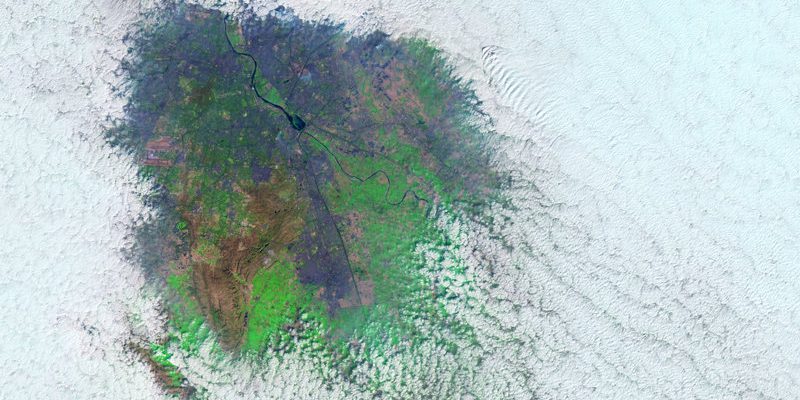-

If you’ve been following international news lately, you know that Cape Town, South Africa, is about to run out of water after several years of a devastating drought. They have been undergoing significant water rationing and even so, are expected to run out of water by July 7. This is a huge city and it…
-

The Southeast Farm Press posted a story this week about how damage to winter vegetables from freezing weather may lead to problems with white mold in the coming months. Spores spread easily by wind and can infect many types of crops. Once it is established, it can be hard to get rid of, so scouting…
-

As the climate in the northeastern US is getting warmer and wetter, beech trees are replacing maple and birch in the forests there. This is not good news because beech trees are less valuable than maples and birch, which can be used for furniture or maple syrup production instead of for firewood like beech. Tourism…
-

Temperatures above normal at the North Pole in February have stunned climate scientists in recent days. In some cases the temperatures have been over 60 F above average for this time of year. (That would be equivalent to Athens GA being at a temperature of 120 F or so right now). The warm temperatures are…
-

As I was driving in to work this morning, I noticed that the peach trees are blooming at the UGA Horticulture Farm in Watkinsville GA. Not a big surprise considering the cold winter, which provided adequate chill hours for many varieties, and the extremely warm conditions which have occurred in the region for the last…
-

As you know, the last few weeks have been much MUCH above normal in temperature across the Southeast, with temperatures in many places setting daily records for maximum and high minimum temperatures and quite a few stations expected to set all-time February daily and monthly records. One of the results of this warm weather is…
-

Atlas Obscura has a fascinating look at an unusual weather phenomenon–holes in the fog cover that occur over cities in India. A recent study was originally done to see how pollution in those cities affected the formation of fog. But what scientists noticed was that holes in the fog banks occurred in winter as viewed…